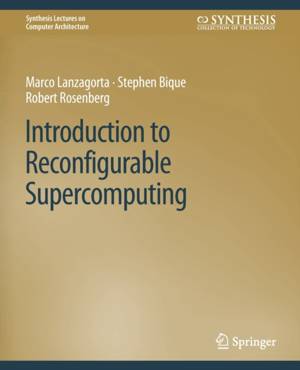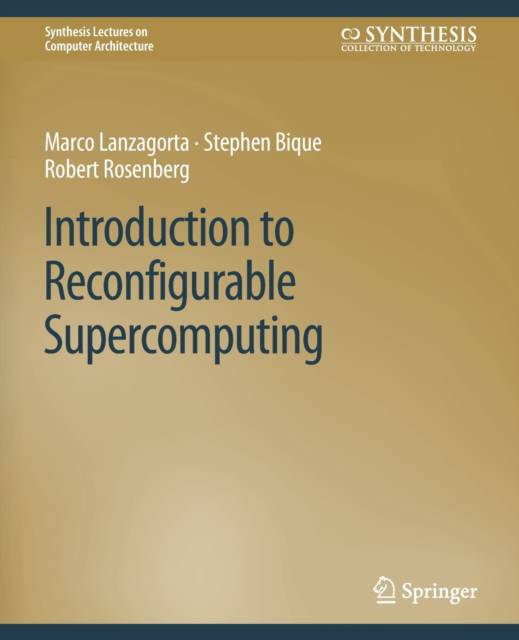
- Afhalen na 1 uur in een winkel met voorraad
- Gratis thuislevering in België vanaf € 30
- Ruim aanbod met 7 miljoen producten
- Afhalen na 1 uur in een winkel met voorraad
- Gratis thuislevering in België vanaf € 30
- Ruim aanbod met 7 miljoen producten
Zoeken
€ 35,45
+ 70 punten
Omschrijving
This book covers technologies, applications, tools, languages, procedures, advantages, and disadvantages of reconfigurable supercomputing using Field Programmable Gate Arrays (FPGAs). The target audience is the community of users of High Performance Computers (HPC) who may benefit from porting their applications into a reconfigurable environment. As such, this book is intended to guide the HPC user through the many algorithmic considerations, hardware alternatives, usability issues, programming languages, and design tools that need to be understood before embarking on the creation of reconfigurable parallel codes. We hope to show that FPGA acceleration, based on the exploitation of the data parallelism, pipelining and concurrency remains promising in view of the diminishing improvements in traditional processor and system design. Table of Contents: FPGA Technology / Reconfigurable Supercomputing / Algorithmic Considerations / FPGA Programming Languages / Case Study: Sorting / Alternative Technologies and Concluding Remarks
Specificaties
Betrokkenen
- Auteur(s):
- Uitgeverij:
Inhoud
- Aantal bladzijden:
- 87
- Taal:
- Engels
- Reeks:
Eigenschappen
- Productcode (EAN):
- 9783031005985
- Verschijningsdatum:
- 10/12/2009
- Uitvoering:
- Paperback
- Formaat:
- Trade paperback (VS)
- Afmetingen:
- 190 mm x 235 mm
- Gewicht:
- 195 g

Alleen bij Standaard Boekhandel
+ 70 punten op je klantenkaart van Standaard Boekhandel
Beoordelingen
We publiceren alleen reviews die voldoen aan de voorwaarden voor reviews. Bekijk onze voorwaarden voor reviews.







